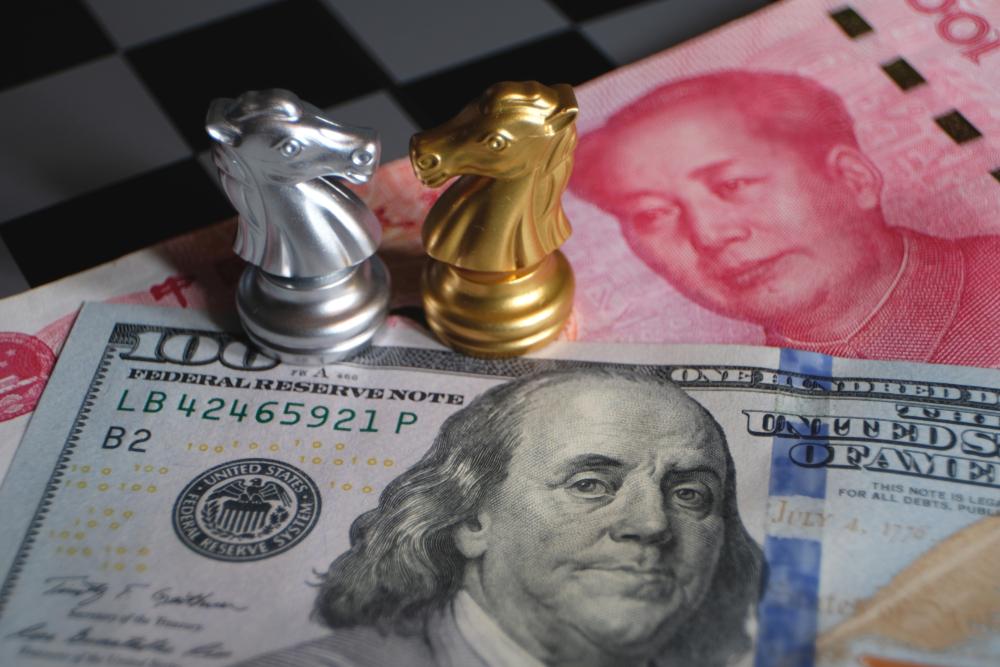Its not over because the fat president sung. With one hand probing the coffers of the US Fed and his other fist shaking at Xi Jinping, you couldn’t accuse President Trump of being docile last week. Today, Yuan devaluation saw China play its first hand in what appears to be the re-opening of the Sino-US royal rumble, but this was in response to Donald Trump’s provocation last Friday.
As told by Connor Campbell, financial analyst for Spreadex,
“The financial markets got a Trump thumping on Friday morning, the European indices left reeling by the President’s shock – but not that shocking – escalation of the trade war with China.”
“Investors probably should have been prepared for this kind of move from the US considering Trump’s negotiations-tanking Twitter rant earlier in the week. The bellicose leader announced that, if a deal can’t be struck between the two superpowers, a fresh $300 billion of Chinese imports would be slapped with a 10% tariff as of September 1st. This on top of those goods already being penalised.”
“Just as it had picked itself up after its post-Fed overreaction, the Dow Jones received a swift kick to the gut, dropping around 300 points to sit at its worst price in over 2 months. Of course, this sparked a round of losses in Asia, including a 2%-plus slide from the Nikkei and a 1.4% drop from the Shanghai Composite, and set the stage for a gory European open.”
Following a week with the Dow diving and the Fed failing to properly address the bond market’s inverted yield curve, China compounded the woes of the global market sentiment with its first salvo.
The People’s Bank of China set its daily reference rate for the Yuan at 6.92 (against the dollar), with the bracket for movement being only 2%. This is symbolic, as the 7 threshold hadn’t been passed since the crash in 2008, and the currency only moved over the threshold to 7.03 around midday on Monday.
China said the ‘weakness’ was a direct result of trade protectionism and new tariffs placed on Chinese goods. Chris Weston, head of research at Pepperstone Group, said that the move was a ‘statement of intent’ from China, and would prompt fears about capital flight from China, alongside potential further financial restrictions in the Chinese economy.
The Yuan suicide mission
Perhaps what is significant to note, though, is that this game of macroeconomic chicken isn’t one in which the US has no option but to back down. Whereas the Chinese state has centralised power and economic influence, the diaspora of US mega firms mean that for anyone wishing to damage the US economy, do so while damaging the performance of US companies benefiting the economies of the countries they operate in.
As stated by senior China economist at Capital Economics, Julian Evans-Pritchard,
“In terms of directly hitting back at the US, it’s quite difficult to do it without hurting themselves.”
“China’s less reliant on foreign investment than it used to be, but it still is keen not to see multinationals shift out of the country en masse,”
“If you make life very hard for US firms operating in China then there’s the risk you’re shooting yourself in the foot to some degree.”
The Clash of Civilizations
Contrary to Samuel Huntington’s suggestion that different ideas would war outside of the boundaries of nation-states, these two economies and ideological creeds appear locked in a recurring battle for cultural supremacy (culture in regard to how they impose their own image on the rest of the world).
As far as this trade war is concerned, Trump will tell the world that today’s currency movement was a malicious act carried out by China, which will damage many countries other than the US.
Looking forwards, financial advisor at Vanguard Capital AG, Imran Lakha, says we can expect further and prolonged escalation in tensions after President Trump’s actions last Friday, and that today’s news won’t be conducive to any improvement in the weak market fundamentals witnessed within the last year.
Other market and macro financial news has come from; the London Stock Exchange Group (LON: LSE) and Sterling.




